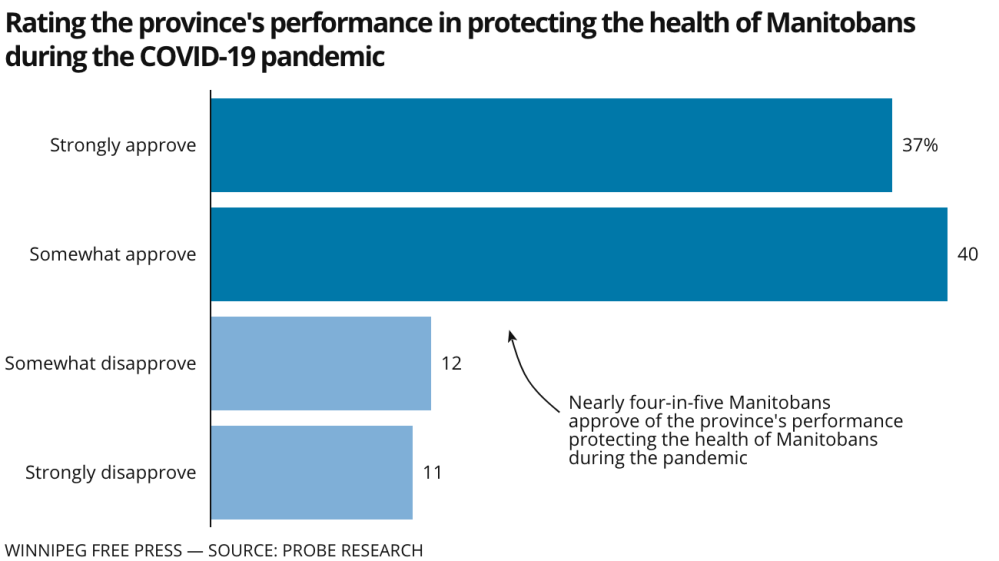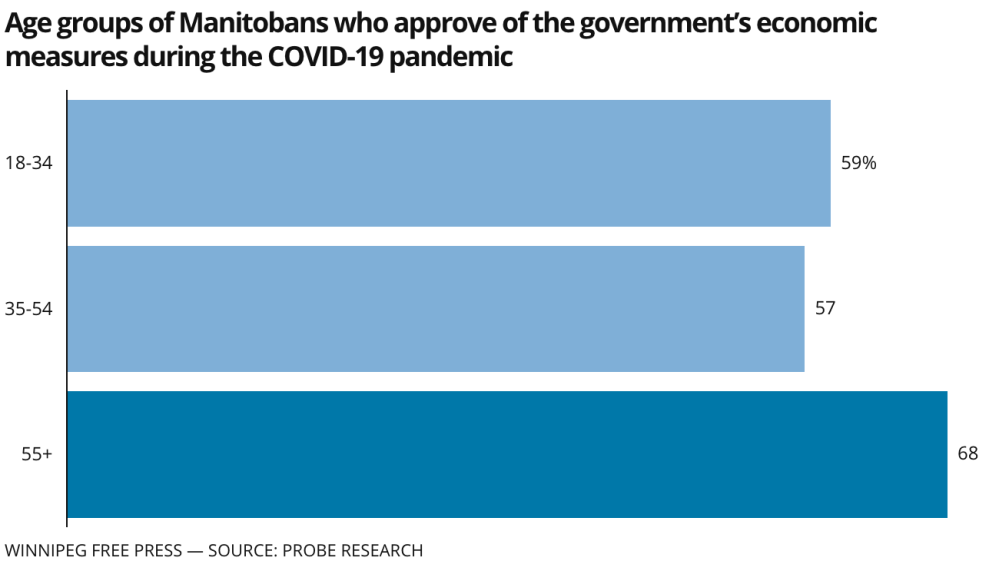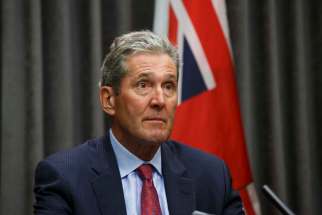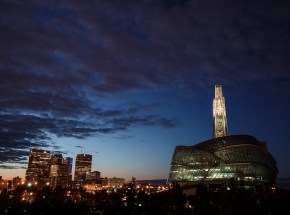PCs pay price for Pallister’s pandemic performance
Read this article for free:
or
Already have an account? Log in here »
To continue reading, please subscribe:
Monthly Digital Subscription
$19 $0 for the first 4 weeks*
- Enjoy unlimited reading on winnipegfreepress.com
- Read the E-Edition, our digital replica newspaper
- Access News Break, our award-winning app
- Play interactive puzzles
*No charge for four weeks then billed as $19 plus GST every four weeks. Offer only available to new and qualified returning subscribers. Cancel any time.
Read unlimited articles for free today:
or
Already have an account? Log in here »
Hey there, time traveller!
This article was published 18/06/2020 (1657 days ago), so information in it may no longer be current.
Political leaders often like to say the only poll they care about is the one on election day. Even so, Premier Brian Pallister and his Progressive Conservative party should care just a little bit about the latest Probe Research-Free Press poll.
Results from two parallel poll questions — one that asks about the premier’s response to the pandemic, the other that looks at voting intentions — show the Pallister government is losing public support. In some instances, the decline has been precipitous.
Support for the PCs has dropped provincewide by five points, giving the Tories a statistical tie with the NDP. In Winnipeg, the Tories have dropped eight points and now find themselves an astounding 19 points back of the NDP in the province’s most important electoral battleground.
Why has support evaporated so much for the Pallister government in the last three months? The pandemic, and Pallister’s response to the economic paralysis that has accompanied COVID-19, have dragged the premier and his party down.
Overall, poll respondents think the Pallister government is doing a decent job of managing public health, with a 77 per cent approval rating. However, when it comes to programs to help businesses and individuals hurt by the economic lockdown, support unravels.
Only 61 per cent of respondents found favour with Pallister’s economic support programs. That’s not surprising given that observers across a vast array of sources believe his economic programs have been over-hyped and under-delivered.
Pallister’s programs have typically featured lofty goals and gaudy price tags. However, months after they were unveiled, only a fraction of businesses and individuals have taken advantage of the programs. In general, his gestures have been too small, too restrictive or have too much overlap with better, federal programs.
Along with middling economic support programs, Pallister served a healthy helping of fiscal austerity at a time when Manitobans least needed it.
Pallister has laid off more provincial civil servants than the gross majority of provinces. He also botched negotiations on wage concessions with public-sector unions, which might have mitigated the increased health care costs and decreased revenue that are ravaging the province’s balance sheet.
He cut the operating budgets of post-secondary schools right at the time that many Manitobans who were out of work or afraid of losing their jobs were trying to further their education.
Pallister exacerbated his situation by boasting daily about the generosity of his economic support programs, even as uptake was extremely low. He seems oblivious to the fact that no amount of hyperbole trumps the experiences of Manitobans whose lives have been disrupted by the pandemic.
Pallister likes to say he does not care about being popular, he only cares about “getting results.” In this instance, however, his popularity is suffering largely because he is not producing results for Manitobans.
Is it fair that Pallister, as leader, bears the brunt of criticism for his party’s drop in the polls? In this instance, yes. Pallister not only serves as the sole face of the province’s pandemic response, but also has a stranglehold on policies and programs.
Along with middling economic support programs, Pallister served a healthy helping of fiscal austerity at a time when Manitobans least needed it.
Like most politicians dealing with the pandemic, Pallister has made almost daily appearances at video news conferences. Although he cannot be faulted for making himself available, Pallister rarely asks other members of cabinet to attend, even when he’s introducing programs that fall within the purview of a specific minister.
Government insiders say Pallister rarely gives his senior staff warning about what he wants to talk about on any given day. As a result, there is little in the way of peer review at the senior levels of political staff. The announcements are all Pallister, all the time.
If Manitobans had responded positively to these programs, Pallister and his government would have earned a bump in popularity. But his vision for weathering the economic devastation brought on by the pandemic has been a failure. Thus, the downward trajectory.
As they digest these alarming poll numbers, Tories will try to find some comfort in three separate rationalizations.
First, we are still more than three years away from an election and a lot could, and will, happen before then.
Second, the NDP and its leader, Wab Kinew, have seen a surge in support while largely being invisible during the pandemic. That is mostly by design; when your main opponent is self-destructing, you don’t do anything to draw eyes away from the smoking rubble. Tories will argue that Kinew and the NDP will lose support once the electorate gets a better look at them.
Finally, Tories will hope that rumours of Pallister’s retirement before the next election are not greatly exaggerated.
There was already a growing sense of discontent in Tory ranks about the premier’s performance during this pandemic. It’s almost certain the hopeful whispers deep within the party about his retirement will become louder after these poll results.
Shakespeare famously wrote that “uneasy lies the head that wears a crown.” In the next few months, Pallister will learn just how uneasy things can get, particularly if he’s not yet ready to relinquish that crown.
dan.lett@freepress.mb.ca

Dan Lett
Columnist
Born and raised in and around Toronto, Dan Lett came to Winnipeg in 1986, less than a year out of journalism school with a lifelong dream to be a newspaper reporter.
Our newsroom depends on a growing audience of readers to power our journalism. If you are not a paid reader, please consider becoming a subscriber.
Our newsroom depends on its audience of readers to power our journalism. Thank you for your support.









